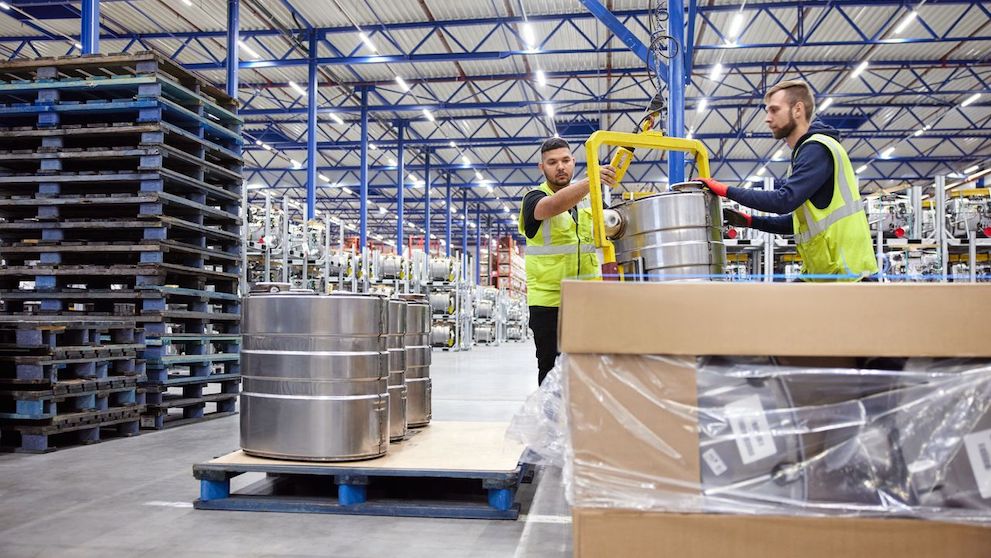Singapore, often hailed as a global trade powerhouse, boasts a vibrant and diversified economy that relies heavily on its export sector. At the same time, this island nation plays a pivotal role in international commerce, serving as a strategic hub for trade and logistics. The country's top exports not only fuel its economic engine but also hold broader implications for regional and global markets.
In 2024, Singapore's top 5 exports, including machinery and equipment, petroleum products, chemical products, miscellaneous manufactured articles, and oil bunkers, continue to drive economic growth, support employment, and foster technological advancement. Let’s delve into these key exports and explore their economic implications.
1. Machinery and equipment (43%)
Commanding 43% of Singapore's total exports, machinery and equipment are a testament to the nation's high-tech manufacturing and innovation prowess. The sector encompasses various products, including electronics, semiconductors, precision engineering equipment, and medical devices.
Within this sector, the electronics and semiconductor industries have emerged as key drivers of growth, fuelled by the increasing demand for cutting-edge technologies and digital solutions worldwide. Singapore's strategic location, skilled workforce, and robust infrastructure have made it an attractive destination for leading electronics manufacturers and semiconductor companies, further boosting its export capabilities.
However, maintaining competitiveness in the global machinery and equipment market is not without its challenges. Economic slowdowns in major markets like China, the US, and the EU can impact demand for Singapore's exports. The ongoing shortage of skilled labour and talent also poses a potential constraint on the sector's growth.
2. Petroleum exports (19%)
Representing a substantial 19% of Singapore's total exports, petroleum products play a vital role in the nation's economic landscape. Singapore's strategic location and state-of-the-art refining and storage facilities have positioned it as a major oil refining and trading hub in the Asia-Pacific region.
The export of petroleum products not only generates significant revenue but also creates numerous job opportunities across the value chain, from refining and storage to logistics industry players and distribution. Moreover, the petroleum industry fosters technological advancements and innovation, driving efficiency and productivity improvements in the sector.
However, the volatile nature of global oil prices poses a challenge to Singapore's petroleum exports. Fluctuations in oil prices can impact export revenues and profitability, necessitating agile and adaptive strategies for businesses in this sector.
3. Chemical products (13%)
Accounting for 13% of Singapore's exports, chemical products hold a significant position in the country's trade portfolio. This sector encompasses a broad spectrum of goods, ranging from pharmaceuticals and speciality chemicals to petrochemicals and plastics.
The demand for chemical products, particularly pharmaceuticals and speciality chemicals, remains robust, driven by the healthcare sector's growth and the increasing need for advanced materials in various industries. With its strong research and development capabilities and favourable business environment, Singapore attracts leading chemical companies, further bolstering its export potential in this sector.
Furthermore, the emerging trends towards biopharmaceuticals and green chemistry offer new avenues for growth in the chemical industry. Singapore's focus on sustainable development and its investments in research and innovation position it well to capitalise on these opportunities.
4. Miscellaneous manufactured articles (8%)
While perhaps not as prominent as machinery or petroleum, miscellaneous manufactured articles still account for 8% of Singapore's exports in 2024. This diverse category encompasses a wide array of products, including jewellery, apparel, footwear, and household goods.
E-commerce has been a key driver of growth for this export category. Singapore's well-developed digital infrastructure and logistics network make it an ideal base for e-commerce businesses looking to reach customers worldwide. With DHL Express' international shipping solutions, businesses can leverage our expertise in customs clearance and efficient delivery to expand their global footprint.
Miscellaneous manufactured articles also reflect evolving consumer trends globally. The demand for unique and personalised products, particularly in the fashion and lifestyle sectors, has spurred the growth of this export category. With their creativity and innovation, Singaporean businesses are well-positioned to cater to these demands and carve a niche for themselves in the international marketplace.
5. Oil bunkers (7%)
While contributing a relatively smaller percentage to Singapore's overall exports, oil bunkers hold strategic importance for the nation's maritime industry. Singapore's port, renowned for its efficiency and connectivity, serves as a crucial refuelling point for vessels traversing the busy shipping lanes of Southeast Asia.
The demand for oil bunkers, or marine fuels, is directly linked to the global shipping industry's activity levels. While fluctuations in trade volumes and oil prices can impact this sector, Singapore's strategic location and its commitment to providing high-quality bunkering services ensure its continued relevance in the global maritime landscape.
Singapore is also actively investing in infrastructure development and technological advancements to strengthen its position as a leading bunkering hub. The upcoming Tuas Mega Port, slated for completion in the coming years, will further enhance Singapore's port capacity and capabilities. Additionally, Singapore's focus on digitalising port operations and adopting sustainable practices underscores its commitment to maintaining a competitive edge in the global maritime sector.
DHL Express’ role in global trade

DHL Express, with its extensive global network and expertise in international shipping and logistics, plays a crucial role in facilitating the smooth movement of Singapore's top exports to markets around the world via overseas shipping from Singapore. Our suite of export services, including express delivery, customs clearance in Singapore, and end-to-end tracking, empowers businesses to navigate the complexities of international trade with confidence.
For businesses dealing with machinery and equipment, we provide specialised handling and packaging services to ensure that delicate and high-value goods are transported safely and securely. For petroleum and chemical product exporters, our expertise in dangerous goods logistics and temperature-controlled shipping ensures compliance and product integrity.
Moreover, our deep understanding of customs regulations in various countries enables us to facilitate efficient customs clearance, minimising delays and disruptions in the shipping process. We also offer online tools and resources to help businesses prepare the necessary documentation and stay informed about the latest trade regulations.
Whether you are a seasoned exporter or just starting your international journey, DHL Express is here to support your business growth. Learn more about our services and how we can help you navigate the complexities of global trade.










































